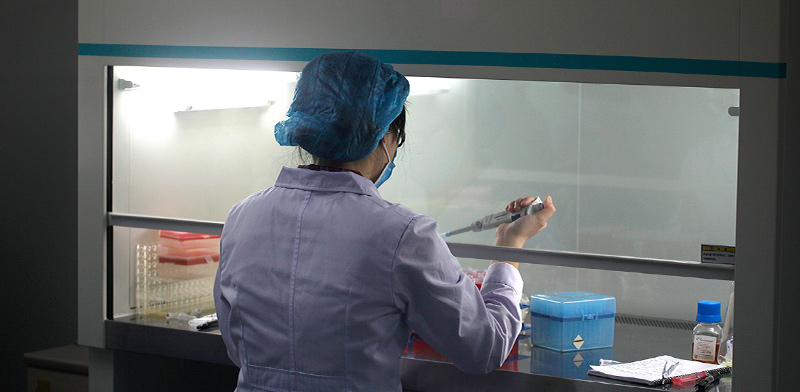An FDA-approved treatment for cholesterol could be effective in dramatically easing the symptoms of Covid-19, the Hebrew University of Jerusalem reports.
Prof. Yaakov Nahmias, founding director of the Alexander Grass Center for Bioengineering, in collaboration with Dr. Benjamin tenOever of New York’s Mount Sinai Medical Center, has found that the drug Fenofibrate (called Ticor commercially) could inhibit Covid-19’s ability to reproduce in lung cells. In the researchers’ study in the Hebrew University’s MicroTissue Lab, the drug was found to be effective in treating infected human tissue. Its effectiveness will now have to be proven in human clinical trials.
An FDA-approved treatment for cholesterol could be effective in dramatically easing the symptoms of Covid-19, the Hebrew University of Jerusalem reports.
Prof. Yaakov Nahmias, founding director of the Alexander Grass Center for Bioengineering, in collaboration with Dr. Benjamin tenOever of New York’s Mount Sinai Medical Center, has found that the drug Fenofibrate (called Ticor commercially) could inhibit Covid-19’s ability to reproduce in lung cells. In the researchers’ study in the Hebrew University’s MicroTissue Lab, the drug was found to be effective in treating infected human tissue. Its effectiveness will now have to be proven in human clinical trials.
An FDA-approved treatment for cholesterol could be effective in dramatically easing the symptoms of Covid-19, the Hebrew University of Jerusalem reports.
Prof. Yaakov Nahmias, founding director of the Alexander Grass Center for Bioengineering, in collaboration with Dr. Benjamin tenOever of New York’s Mount Sinai Medical Center, has found that the drug Fenofibrate (called Ticor commercially) could inhibit Covid-19’s ability to reproduce in lung cells. In the researchers’ study in the Hebrew University’s MicroTissue Lab, the drug was found to be effective in treating infected human tissue. Its effectiveness will now have to be proven in human clinical trials.
Nahmias developed a hypothesis that the virus needs an accumulation of fat in the lung cells in order to reproduce within the lungs. Viruses have no ability to reproduce independently and they do so within the cells. Nahmias and his colleagues scanned the way the virus behaves using robotic systems in the laboratory.
Nahmias said, “We saw that the reaction of the lungs to SARS-COV-2 was mainly metabolic and led to an accumulation of fat in the lungs. Our data indicates that the accumulation of abnormal fats could predicate critical aspects of the development of Covid-19. We are talking about a breakthrough, which could open up possibilities for neutralizing the activity of the virus by focusing on the host tissue, which provides it with a platform to develop. This led us to check which existing treatments can impair the ability of the virus to reproduce and thus restrain the severity of the illness.”
The lab trials found that Fenofibrate, approved in 1975 for the treatment of cholesterol, but superseded by statins, enabled the lung cells to swiftly break down the fat. The researchers found that the drug blocked the ability of the coronavirus to ‘hijack’ the metabolism of the lung cells and thus actively inhibit its reproduction and consequently the development of the disease.
Prof. Nahmias said, “Our discovery comes at just the right time because there are new indications that antibodies to the virus can only protect patients for a few months, whereas if our results are confirmed in clinical trials, then within a few months treatment with our drug could be turning Covid-19 into a type of common cold.
Published by Globes, Israel business news – en.globes.co.il – on July 15, 2020
© Copyright of Globes Publisher Itonut (1983) Ltd. 2020





